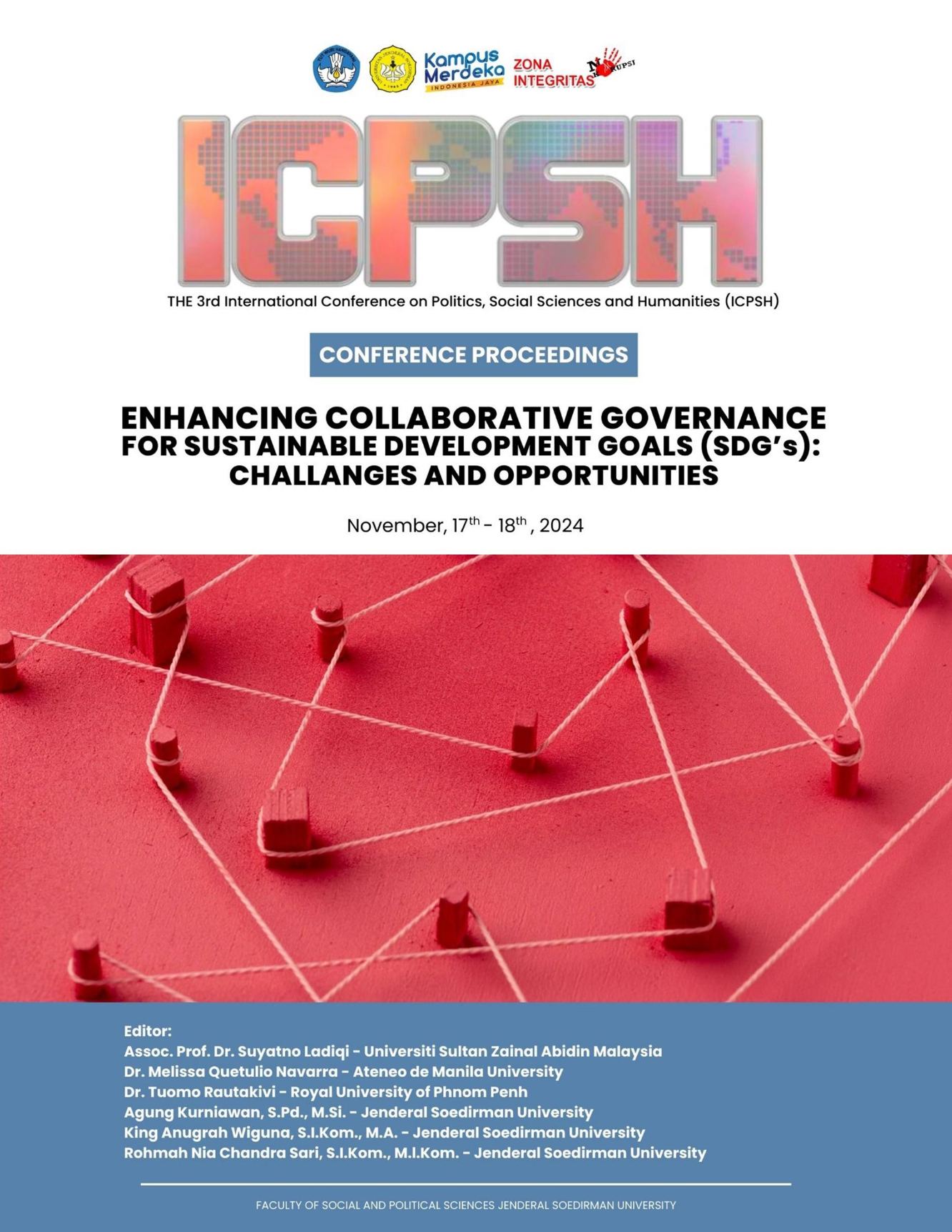Political Participation Of Indonesian Migrant Workers In 2019 Indonesia's General Election In Kota Kinabalu Sabah
Abstract
This study examines the political participation of Indonesian migrant workers in the 2019 Indonesian
General Election in Kota Kinabalu, Sabah. Migrant workers' political participation reflects their active
involvement from political awareness that develops due to political literacy, media influence, social
interaction, and their social environment, which influences political choices. Qualitative research methods
were used in this study, including purposive interviews with 30 informants and direct observation.
Documentation was collected from various sources, including the Indonesian Consulate General in Kota
Kinabalu, Sabah, and the election committee. Secondary data included reference materials, journals,
articles, and internet sources. The results showed that the 2019 general election in Kota Kinabalu, Sabah,
followed Indonesian election regulations despite challenges, including difficulties in obtaining key
personnel and data collection. Media influence and political literacy significantly shape migrant workers'
political attitudes, with those exposed to media having higher political literacy and making more rational
political choices. Political education, media exposure, social environment, family, friends, community, and
personal experience strongly influence political decisions. Media and political literacy were identified as
the dominant factors in the election of the president and vice president. At the same time, community,
family, friends, and personal experience influenced the election of members of parliment. For more
effective and efficient elections, some electoral policies in Sabah may need to be revised to accommodate
the unique conditions of migrant workers and the vast territory.



